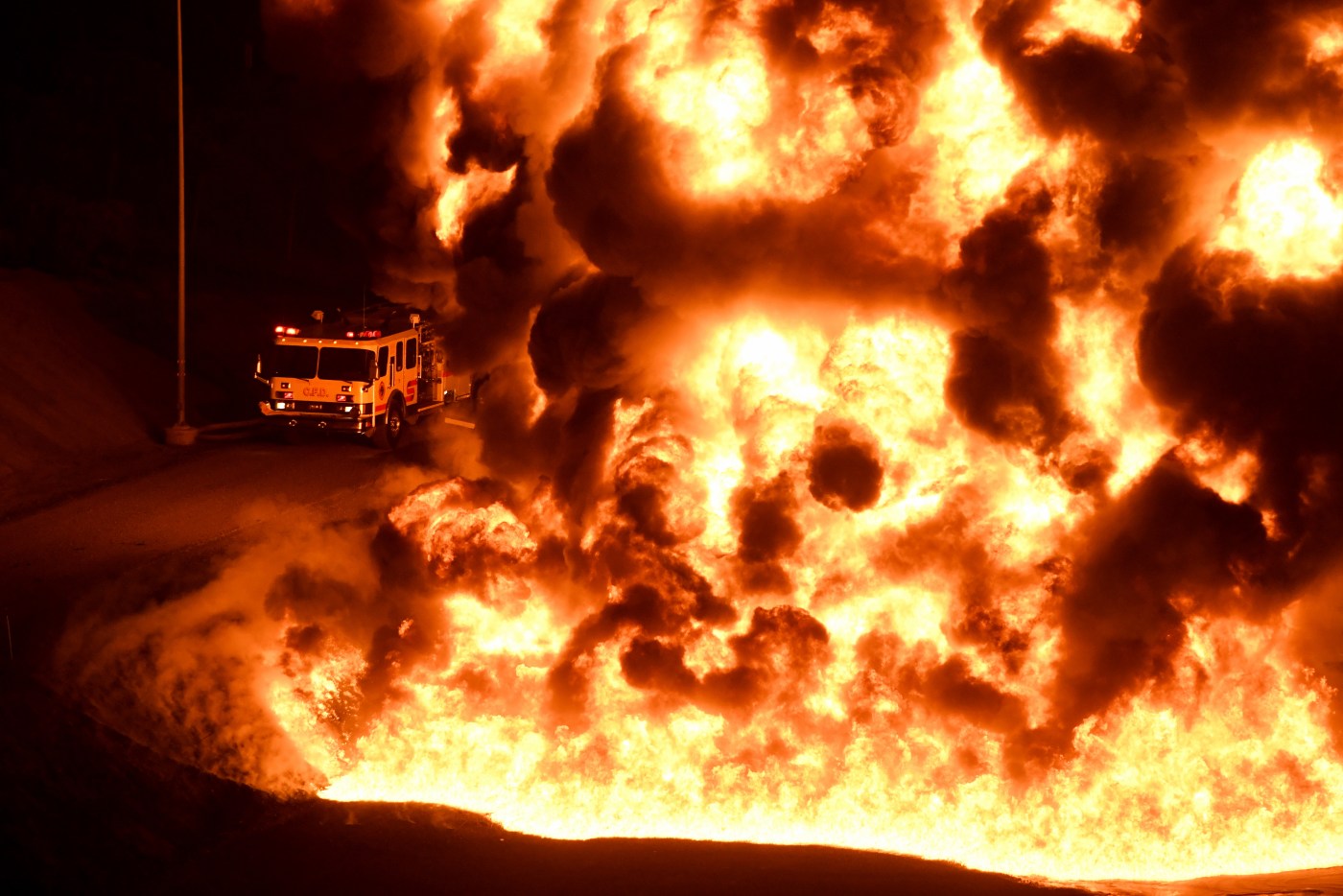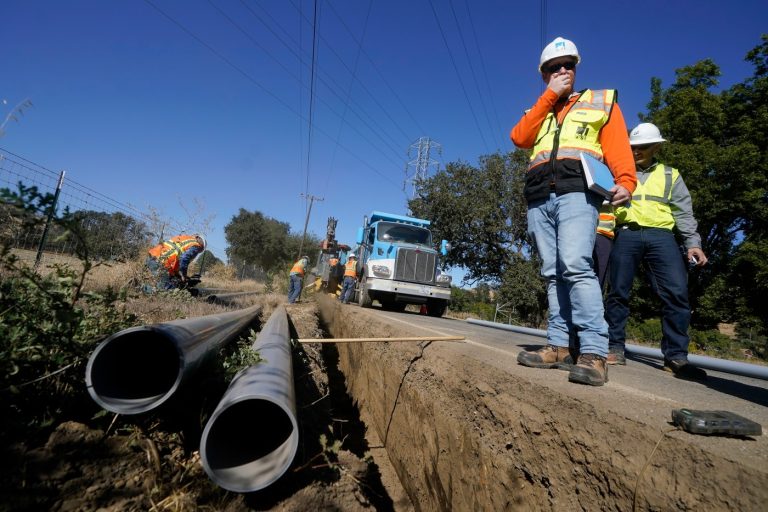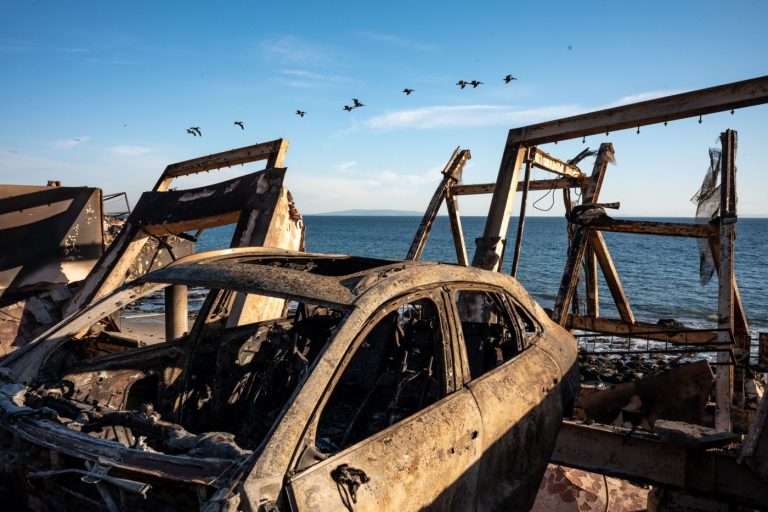CROCKETT — Nearly five years after a fiery explosion at an East Bay fuel facility shut down one of the Bay Area’s busiest freeways and forced nearby communities to shelter in place, Contra Costa County officials have approved a plan that aims to prevent future disasters at terminals storing hazardous materials.
In October 2019, a fire erupted at the NuStar Energy facility in Crockett, igniting two large ethanol tanks and spreading to the vegetation on a nearby hillside, where it burned for several hours.
A subsequent investigation found that the blast at NuStar’s Selby Terminal was most likely caused by an electrical spark that touched off ethanol vapors, which triggered explosions that could be heard for miles, according to witnesses at the time, and created a fireball visible from nearby Interstate 80.
While the Crockett site can handle up to 3 million barrels of fuel, the destroyed tanks were only holding about 1% of their 200,000-barrel ethanol capacity at the time.
Related Articles
An East Bay county wants to fix its problem-plagued emergency warning system. But the man who runs it may not be on board.
Grand Jury: Contra Costa County’s emergency warning system endangers residents
The county on Tuesday amended its Industrial Safety Ordinance to mandate best practices for preventing accidental releases at NuStar and 15 other regional energy storage facilities. These sites — all of which have at least one tank exceeding 50,000-gallon capacity and contain a minimum of 10,000 pounds of flammable liquid — previously operated without many of the relatively strict federal, state and local safety policies that govern oil refineries and chemical plants.
Nicole Heath, director of Contra Costa County’s hazardous materials programs, said the amended safety ordinance was crafted to prioritize public participation and protect nearby communities and the environment.
Heath said three facilities in unincorporated Contra Costa County — including the NuStar facility, one in Martinez and one in Richmond — now fall under the ordinance’s new storage-tank oversight. Following the county’s approval this week, elected officials in Richmond, Martinez and Pittsburg will consider implementing similar regulations on facilities operating within their city limits.
“These amendments are aiming towards preventing incidents like the 2019 NuStar incident from occurring,” Heath said Tuesday. “It is our hope that by implementing these additional process safety program elements, we will be increasing the safety at these facilities right now.”
In addition to an overarching safety program management system, the updated ordinance focuses on several key areas: safety information, operating procedures, mechanical integrity, management of change, pre-startup reviews, incident investigation and emergency response.
Department staff will now review submitted safety plans, conduct initial and periodic audits and inspections and mandate necessary modifications to ensure full compliance with the county’s rules.
For example, facilities must clearly designate internal chains of command, emergency plans, notification procedures, employee training and thorough investigations that go beyond reports of uncontrolled ignitions, major chemical accidents or other incidents.
Additionally, the ordinance requires storage tank facilities to log and review safety procedures any time equipment is significantly updated or materials are modified.
Residents will be able to review these reports online and during annual performance reviews in future county board meetings. Industrial operators who do not follow the updated regulations may be subject to enforcement, including criminal prosecution and administrative penalties.
Supervisor John Gioia said that the recent amendments are key to bolstering the county’s Hazardous Materials Programs, which he said enforce “the strongest local safety ordinance in the country on refineries, chemical plants and now these storage tanks,” according to the U.S. Chemical Safety Board.
Yet he lauded how county staff continues to expand its oversight powers over these industrial facilities, which is otherwise uncommon across California.
“After the unfortunate tragedy at NuStar, we embarked on a longer process than we thought it would take,” Gioia said during Tuesday’s board meeting. Despite the delay, he said, “this has made our county a safer place.”












